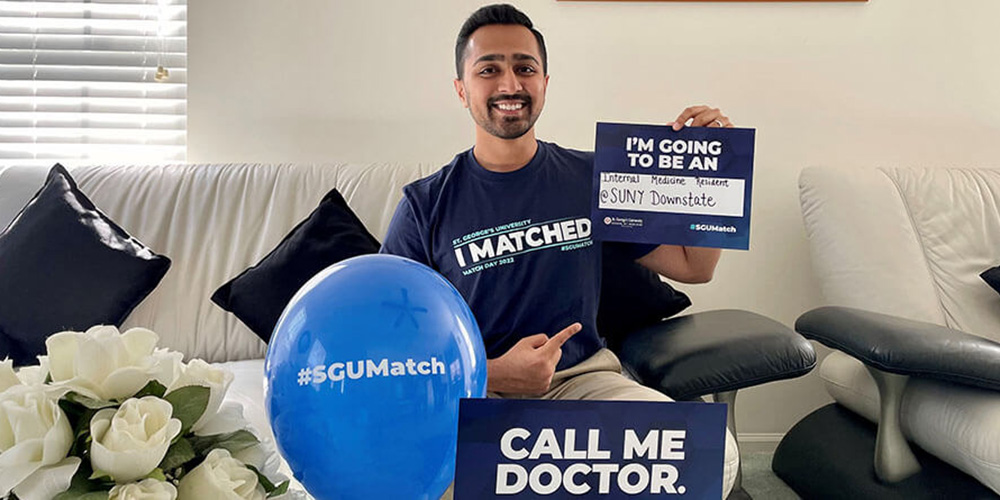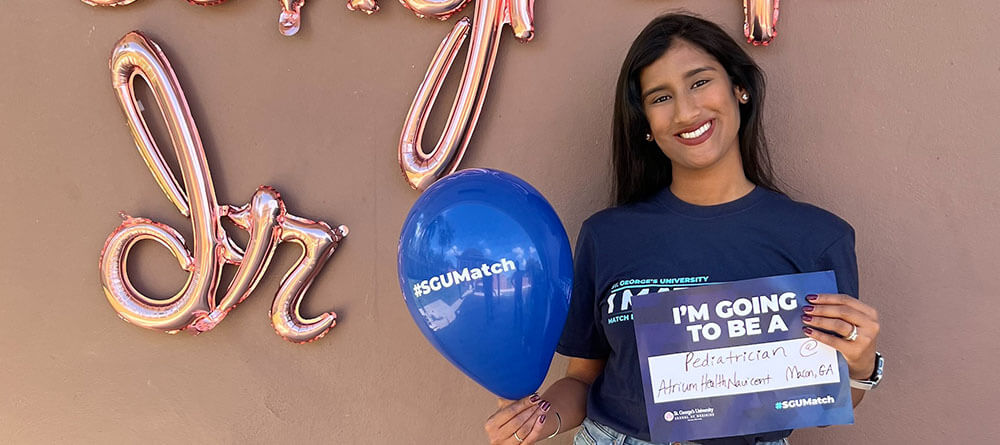The path to becoming a physician is filled with notable milestones: getting accepted into medical school, passing important exams, interviewing for residencies, and eventually landing a residency position that will provide you with the hands-on clinical training you need to begin practicing as a licensed physician.
You may be wondering: What is match day in medical school? Simply put, it is the process of securing a residency placement. It’s completed using the National Resident Matching Program’s (NRMP) Residency Match. This system places medical students into U.S. residency programs based on a litany of criteria.
While the “Match” experience is very streamlined, many medical students are unsure of what to expect. We answered 10 frequently asked questions about medical school Match Day.
7 Common questions about Match Day
1. When is Match Day?
Match Day happens on the third Friday in March. On Monday of that week, students learn whether they’ve matched with a residency program but they don’t yet find out where they have matched. This Match status notification is sent by email at 10am ET on Monday. Then, at 12pm ET on Friday, everyone’s match results are officially released via email.
2. What happens on Match Day?
A celebration of course! At SGU, students partake in a virtual celebration by sharing photos and videos on social media. Students are sent all the necessary supplies in their Match Day kit including:
- Balloons,
- Party poppers,
- Stickers,
- Signs,
- And a t-shirt.
Here are some of our best tips and tricks to help you capture amazing photos and videos to commemorate the occasion:
- Wardrobe: We recommend wearing your Match Day t-shirt, your white coat, or a professional, polished outfit.
- Background: Choose a tidy filming location and remove distractions from the camera view. Avoid including patients or staff if filming in an office or hospital.
- Framing & camera positions: Center yourself in the frame, face a light source, and avoid backlighting for better focus. If you can, take both vertical and horizontal shots for variety. Be sure to capture solo shots of yourself celebrating.
Do you have to accept your match?
Once you reach this stage, you’ve entered a legally binding agreement. To participate in the Match, applicants must sign the Match Participation Agreement, which includes a Binding Match Commitment—ensuring both applicants and programs honor their matches.
However, waivers may be granted in cases of extreme hardship, specialty changes, or ineligibility. If approved, applicants can pursue other opportunities or reapply in a future Match. Without a waiver, they must uphold their commitment.
4. Can you change residencies after matching?
Matching to a residency is a contractual commitment, but it doesn’t necessarily mean you’re locked in for the full duration. Residents must stay in their program for at least 45 days after their contract begins—leaving earlier may bar them from re-entering the Match. If you wish to transfer due to dissatisfaction, a specialty change, or personal reasons, it is possible, but the process differs significantly from the Match.
Unlike the streamlined Match system, transfers require independently finding openings, handling paperwork, and coordinating interviews—all while fulfilling residency duties. The AMA Residency & Fellowship Database can help locate opportunities, but securing a transfer is much like job-hunting while employed, which can be challenging. To avoid this, craft your rank order list carefully and only include programs where you’d be happy to train.
5. What is a Match violation?
The Match Participation Agreement doesn’t only include guidelines related to honoring match results. There is a Match Code of Conduct that participants are held do, which means there are a number of other ways students can violate their match agreements.
Residency programs have their own code of conduct they must follow, but some of the guidelines for participants include:
- Maintain ethical behavior during recruitment
- Fully disclose information pertinent to programs
- Respect a program’s right to privacy and confidentiality
- Limit post-interview communication
- Rank and match with integrity
Violations, such as contacting programs at inappropriate times, accepting a position outside the Match, or not honoring match results, can lead to suspension from the Match system for a set period.
6. What if you don’t match?
If you don’t match on Monday of Match Week, you still have options. Unmatched applicants can use the NRMP’s Supplemental Offer and Acceptance Program (SOAP) to seek unfilled positions between the notification and Match Day.
SOAP provides a uniform system for programs to offer unfilled residency positions to eligible unmatched candidates through a series of offer rounds during Match Week. There is no additional registration needed to participate in this program as those who are registered for the Match are automatically verified as eligible.
The SGU School of Medicine Office of Career Guidance (OCG) puts together a team of experienced people to help you through the SOAP process. If you take a gap year, OCG will also assist you in choosing one of the tuition-free options SGU provides that best fits your career goals.
It’s often recommended to expand your horizons if you find yourself unmatched. It can help to look beyond the criteria of your original rank list or even consider pursuing another specialty. Some students in this situation may opt to seek out “transitional year” residency positions, where they rotate through various specialties for short periods of time to gain exposure to numerous different types of medical care.
No matter what, if the Monday of Match Week comes along and you find that you haven’t matched anywhere, you need to remember that you still have options. If you’re unsure about your next steps, it’s best to connect with your academic advisor and map it out together.
7. What happens after Match Day?
After the excitement of Match Week settles and you’ve secured your residency, you’ll still have coursework and exams to finish before graduation. Stay focused—completing medical school strong is crucial, even after you’ve matched.
As you prepare for residency, coordinate relocating to a new city, secure housing, and start planning your move. It’s also important to plan your residency budget and anticipate any expenses. Residency is a full-time job, and while you’ll receive a salary, your time will be limited. Use the time before residency wisely. If you want to travel, spend quality time with loved ones, or take care of other personal priorities, now is the time to do it. Life as a resident will be fast-paced, and finding time for these activities later will be much more difficult.
Prepare for a successful residency
Making it through medical school and securing a residency position is no small accomplishment. Looking ahead toward fast-paced, hands-on clinical training can be both exciting and intimidating for new MDs.
If you’re eager to learn what residency will be like, you can learn more in our article “What to Expect as a Resident Doctor: A Closer Look at Medical Residency.”
* Average of 2020, 2021, 2022, 2023 and 2024 residency placement rates. Residency placement rate is defined as the total number of students/graduates who obtained a US residency divided by the total number of students/graduates who applied to a US residency program in a given year as of October 2024.
This article has been updated from February 2023 to include current facts and figures.


